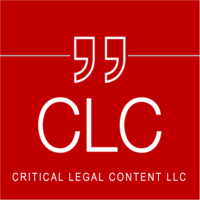
Emerging Litigation Podcast
The Long and Brawny Arm of the Foreign Corrupt Practices Act with Mark Bini and Tom Suddath
Hey! Corporate corruption costs $5 trillion a year! In this episode two former prosecutors talk about the Foreign Corrupt Practices Act, the government’s leading weapon in its global war on corporate crime. They also talk about the new statute on the block, the Foreign Extortion Prevention Act, and the many complexities of this fascinating area of the law. Check out our interview with Reed Smith attorneys Mark Bini and Tom Suddath. They know this area of the law inside and out.
False Claims Act, Health Care Whistleblowers, and Whistling in the Wind with Justin Lugar
In this episode, we discuss How whistleblower cases come about, the benefits of rewarding whistleblowers, how things are done differently outside the U.S., what’s driving the acceleration of this area of law, and best practices when your company is served with guest Justin Lugar of WoodsRogers. Drawing on his background as both public servant and private practitioner, Justin walks through these issues and others.
President Biden’s Critical Infrastructure Cyber Memo and CrowdStrike’s Whoopsie Daisy with Elizabeth Burgin Waller
In this episode, we discuss our nation's critical infrastructure in the context of cybersecurity, addressing President Biden's recent National Security Memorandum on Critical Infrastructure Security and Resilience and its implications for sectors like energy, water, and transportation, with guest Elizabeth Burgin Waller of WoodsRogers. Beth also comments on a recent global system glitch that underscores the vulnerability of the networks behind many of our most critical services. We're talking CrowdStrike and Microsoft Windows.
A Shameless Plug for Our Content Services
Your content marketing is everything you’ve ever dreamed of. Right?

Critical Legal Content was founded by Tom Hagy, former Editor & Publisher of Mealey’s Litigation Reports and VP at LexisNexis, founder of HB, current litigation podcaster and editor-in-chief. CLC’s mission is to help smaller firms and service providers not only create content — blogs, articles, papers, webinars, podcasts (like the stuff on this site) — but also to get it out there. How? Via social media, this website, your website, and potential via our podcast and journal which we publish in collaboration with vLex Fastcase and Law Street Media. The goal is to attract readers and dizzy them with your brilliance.
*Inspired by actual events.
Create content like a real legal publisher.
Journal on Emerging Issues in Litigation
JEIL S24 Top Legal Risks with Generative AI by Graham Reynolds, Robin Sagstetter, and Damon W.D. Wright
The authors, Graham Reynolds, Robin Sagstetter, and Damon W.D. Wright discuss recent court cases which have brought to the forefront the top legal risks associated with the use of Generative AI.
The Use and Abuse of the Pollution Exclusion by Robert D. Chesler, Dennis J. Artese, and Jamie O’Neill
The authors, Robert Chesler, Dennis Artese, and Jamie O'Neill of Anderson Kill examine recent court decisions and ongoing cases that have brought to the forefront the critical issue of the reach of pollution exclusions in insurance policies.
Cracking the College Sports “Cartel”: Good for Athletes, Competition, and the Games by Joy Sidhwa and Tim LaComb
Momentum in the national debate over whether a college athlete should profit from licensing deals for their “names, images, and likenesses,” or NILs, swung in favor of players on June 21, 2021, when the Supreme Court ruled for the athletes in NCAA v. Alston. Authors Joy Sidhwa and Tim LaComb of MoginRubin, LLP discuss the impacts of the decision and subsequent court decisions and state legislation which have further cemented and defined the changing amateurism rules in college sports. As the authors note, "the ultimate test of whether amateurism drives demand will come after new state laws allow compensation unrelated to education. If compensation doesn’t trigger a drop in demand, the NCAA will lose its procompetitive justification for the restriction and likely bring an end to amateurism rules".
HB Webinars on the West LegalEdcenter
The Medical Monitoring Tort Remedy: Advanced Level
The medical monitoring tort remedy – allowing for medical monitoring without physical injury – is recognized in 14 states and not allowed in 23. The law is divided in two states while the rest have not specifically addressed the issue. States that allow medical monitoring to do so when a group of claimants is at increased risk of disease or injury due to exposure to a known hazardous substance or a dangerous product as the result of a defendant’s conduct. Under this tort remedy, claimants are tested periodically, for an agreed or decided period, usually between 10 and 40 years. In this CLE webinar, Gentle Turner & Benson LLC attorneys Edgar (“Ed”) C. Gentle III and Katherine (“Kip”) A. Benson discuss the evolution of the medical monitoring tort, related cases, tests to determine whether the tort should be applied, types of monitoring, and the arguments for an against medical monitoring.
Avoiding the Nuclear Verdict or the Defense Verdict
According to professionals in the insurance industry and the defense bar, the number of nuclear verdicts, or verdicts that exceed $10M, is on the rise. Although the defense may prevail over plaintiffs more often at trial, when the defense loses, they lose big. And plaintiffs who could have obtained needed resources in settlement, sometimes "roll the dice" at trial and get less, or nothing at all. Do clients really want to engage in such high stakes showdowns? Is there a better way to administer "justice?" In this CLE webinar, Mediator Arbitrator Jeff Trueman and Negotiation Educator and Author, John Lowry discuss these very questions. Register for the on-demand webinar today!
Litigation After Biometric Privacy Law Violations
In this CLE webinar, Anderson Kill attorneys, Cort Malone and John Leonard discuss the state of biometric privacy litigation, the regulatory landscape, and insurance coverage considerations and rulings.












